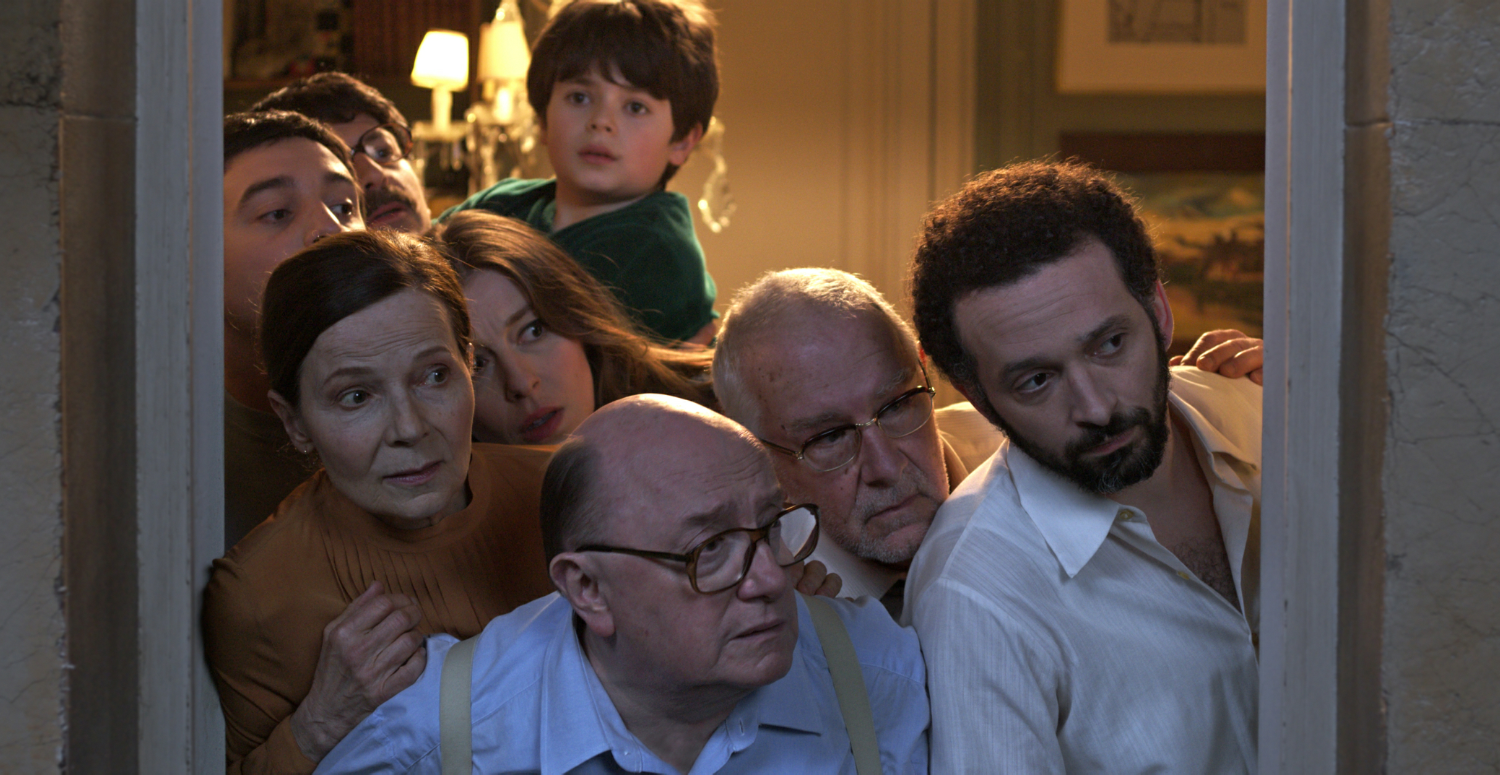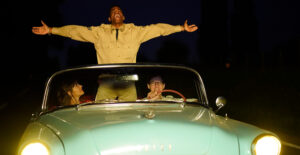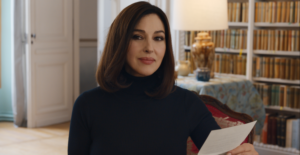La Cache
(The Safe House)
2025

FR EN
Rue de Grenelle, à Paris, en mai 1968, toute une famille vit recluse dans un appartement. Il y a Christophe (le narrateur et enfant de six ans), mais aussi mère-grand, père-grand, grand oncle, petit oncle, arrière-pays (oui oui) et, un peu moins présents, papa et maman. Et cette étrange famille ainsi que cette cache renferment quelques secrets.
Surprenant, curieux, bizarre, « La Cache » est un long-métrage qui détonne tant pour sa forme que son fond. Adapté du roman éponyme de Christophe Boltanski, le film dresse une espèce de chronique de la vie à part (isolée) de personnages à part (des intellectuels) dans une période à part (les « évènements » de mai 1968) – des personnes-bulles dans un logement-bulle lors d’un moment-bulle. Sans jamais connaître par exemple leurs noms, l’on apprend que très progressivement très peu de choses sur les protagonistes : çà et là l’on découvre que l’une est une reporter à ses temps perdus, que l’autre est un artiste contemporain, que l’autre est un médecin renommé, que l’autre est un spécialiste de la rhétorique ou encore que l’autre est une immigrée originaire d’Odessa et adorant Prokofiev.
Il se passe en réalité assez peu de choses dans ce film alors même que la société bouge au-dehors de la cour d’immeuble, et pourtant quelques sursauts scénaristiques (comme l’apparition surréelle d’un personnage extérieur) nous maintiennent intrigués. Aussi parce que les acteurs (feu le grand Michel Blanc, Dominique Reymond, William Lebghil, Liliane Rovère…) sont quelque peu fascinants dans leurs rôles.
Le visuel y est aussi pour quelque chose : le film est en grande partie en huis clos dans un appartement typique des années 1960, mais les excursions des personnages, notamment les scènes dans la voiture de mère-grand (tournées comme à l’époque des films du milieu du siècle avec un arrière-plan artificiel), ont un côté plutôt onirique, avec des paysages certes souvent banals mais paradoxalement marquants. En fait, tout est dans le titre (ou pas) : cette famille a du mal à sortir, parce qu’encore traumatisée de la guerre et de la Shoah, mais cela ne l’est évoqué qu’indirectement – et c’est ça qui dénote.
Axel Chevalier
In Paris’s, on Grenelle Street, in May 1968, a whole family lives in an apartment in seclusion. There’s Christophe (the six-year-old narrator), but also the grandmother, the grandfather, the great-uncle, another uncle, someone from the hinterland (yes, yes) and, a little less present, mom and dad. And this strange family and this hideout hold a few secrets.
Surprising, curious, weird, “La Cache” (lit. ‘The Hideout’) is a feature film that stands out for both its style and its substance. Adapted from Christophe Boltanski’s novel of the same name, the film chronicles the singular (isolated) lives of singular (intellectuals) characters in a singular (the May 1968 “events”) period – people living in a kind of bubble both in terms of dwelling or moment. Without ever knowing their names, for example, we gradually learn very little about the protagonists: here and there we find out that one is a reporter in her spare time, the other a contemporary artist, the other a renowned doctor, the other an expert in rhetoric, and the other an immigrant from Odessa who loves Prokofiev.
There’s really very little going on in this film, even though society is in motion outside the apartment block, and yet a few plot twists (such as the surreal appearance of an outsider) keep us hooked. That’s also because the actors (the late, great Michel Blanc, Dominique Reymond, William Lebghil, Liliane Rovère…) are quite fascinating in their roles.
The visuals also play a key role: most of the film takes place behind closed doors in a typical 1960s apartment, but the characters’ outings, particularly the scenes in Grandma’s car (shot in the style of mid-century films, with an artificial background), have a rather dreamlike quality, with landscapes that are often mundane but paradoxically memorable. In fact, it’s all in the title (or not): this family is having trouble getting out, because they’re still traumatized by the war and the Holocaust, but this is only hinted at indirectly – and that’s what makes it stand out.
Axel Chevalier

